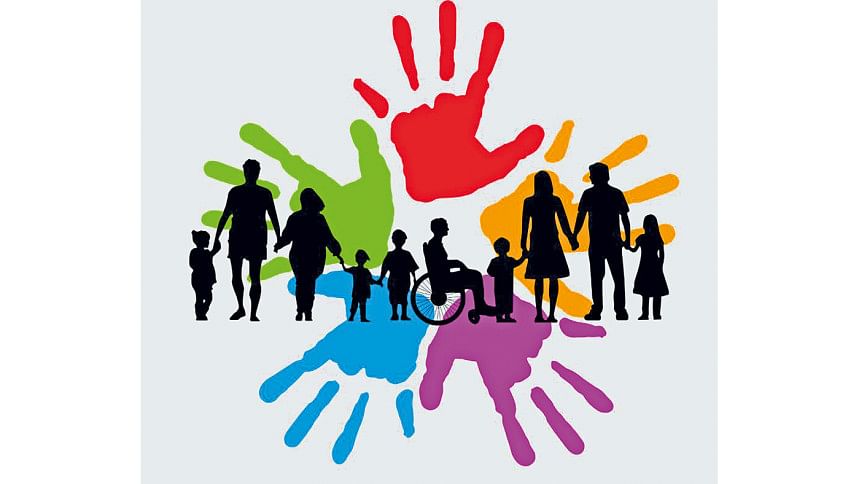Electoral inclusion of Persons with Disabilities

According to the National Survey on Persons with Disabilities (NSPD) 2021 by Bangladesh Bureau of Statistics (BBS), the percentage of disability is higher among adult people than among children in Bangladesh. As a citizen of Bangladesh, persons with disabilities have constitutional right to be treated equally and with non-discrimination. The principle of universal, equal, free, and secret ballots are essential components of the fundamental right of people with disabilities to vote. Furthermore, disability-inclusive parliament is one of the core pillars of democracy which is enshrined in Bangladesh constitution as a founding principle.
Although the Rights and Protection of the Persons with Disabilities Act 2013 addressed some issues of social securities, vertical improvements in terms of democratic rights of PWDs remains elusive. Nonparticipation in the political life is a clear indication that PWDs is not on the same boat as other privileged sections of the society. That absence is a prominent threat to realizing an exploitation-free equal society as pledged in the constitution. The recognition of PWDs in political life is in complete alignment with the democratic high ideals in the fundamental principles of state policy as well. Though reservation for women is secured in the constitution, pro-disabilities reservation is yet to be included. But there is scope within Article 28(4) of the constitution to interpret Article 65(3) of the constitution for a more inclusive amendment. A reformed reservation scheme can pave way for balanced electoral opportunities for the PWDs.
By and large, lack of policies, regulations, and legislation relevant to an inclusive and accessible voting process for people with disabilities is creating electoral barriers for PWDs in our country.
The duty of the state to establish political participation of PWDs on equal basis with other citizens depends upon some condensed factors of equity and good public utilities. The main obstacles are insensitive social attitudes that exclude, discriminate against, and disregard PWDs from political involvement with others on an equal footing. By and large, lack of policies, regulations, and legislation relevant to an inclusive and accessible voting process for people with disabilities is creating electoral barriers for PWDs in our country.
The 2013 Act recognises different sorts of disabilities such as physical, visual, speech, intellectual, deafness, blindness, down syndrome, autism etc. "Accessibility" is one of the core standing parameters in the bundle of rights offered in the Act. The diversity-based electoral inclusion requires some structural renovation for ensuring accessibility. For instance, accessible built-facilities and audio-visual aids for physically and visually challenged people in the parliament, can go a long way. Inclusion of PWDs in the electoral process also requires congenial digital innovation. Relevant authorities ought to foster inclusive election by adopting scrutinisation of election process at different tiers as mandated by article 33(2) of the UN Convention on the Rights of Persons with Disabilities. Political parties should have disability wing as well as internal reservations for the PWDs within the parties. Furthermore, regional collaboration coupled with inclusive policies can accelerate political participation of PWDs.
The writer is Lecturer, Department of Law and Human Rights, University of Asia Pacific.

 For all latest news, follow The Daily Star's Google News channel.
For all latest news, follow The Daily Star's Google News channel. 



Comments